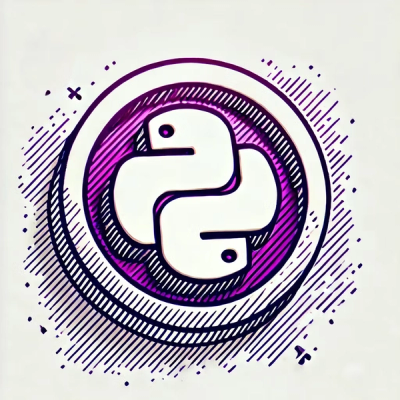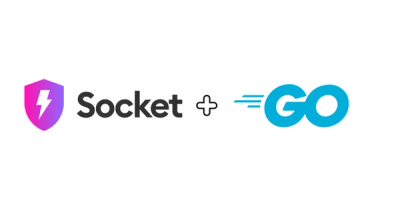
Research
npm Malware Targets Telegram Bot Developers with Persistent SSH Backdoors
Malicious npm packages posing as Telegram bot libraries install SSH backdoors and exfiltrate data from Linux developer machines.
Web application security middleware.
var express = require('express'),
app = express(),
session = require('express-session'),
lusca = require('lusca');
//this or other session management will be required
app.use(session({
secret: 'abc',
resave: true,
saveUninitialized: true
}));
app.use(lusca({
csrf: true,
csp: { /* ... */},
xframe: 'SAMEORIGIN',
p3p: 'ABCDEF',
hsts: {maxAge: 31536000, includeSubDomains: true, preload: true},
xssProtection: true,
nosniff: true,
referrerPolicy: 'same-origin'
}));
Setting any value to false will disable it. Alternately, you can opt into methods one by one:
app.use(lusca.csrf());
app.use(lusca.csp({ /* ... */}));
app.use(lusca.xframe('SAMEORIGIN'));
app.use(lusca.p3p('ABCDEF'));
app.use(lusca.hsts({ maxAge: 31536000 }));
app.use(lusca.xssProtection(true));
app.use(lusca.nosniff());
app.use(lusca.referrerPolicy('same-origin'));
Please note that you must use express-session, cookie-session, their express 3.x alternatives, or other session object management in order to use lusca.
key String - Optional. The name of the CSRF token added to the model. Defaults to _csrf.secret String - Optional. The key to place on the session object which maps to the server side token. Defaults to _csrfSecret.impl Function - Optional. Custom implementation to generate a token.cookie String|Object - Optional. If set, a cookie with the name and/or options you provide will be set with the CSRF token. If the value is a string, it'll be used as the cookie name.cookie.name String - Required if cookie is an object and angular is not true. The CSRF cookie name to set.cookie.options Object - Optional. A valid Express cookie options object.angular Boolean - Optional. Shorthand setting to set lusca up to use the default settings for CSRF validation according to the AngularJS docs. Can be used with cookie.options.blocklist Array or String - Optional. Allows defining a set of routes that will not have csrf protection. All others will.blocklist: [{path: '/details', type: 'exact'}, {path: '/summary', type: 'startWith'}]
//If match type is 'exact', route will get blocklisted only if it matches req.path exactly
//If match type is 'startsWith', Lusca will check if req.path starts with the specified path
For backwards compatiblity, following configuration is supported as well. It will be evaluated using the 'startsWith' match type.
blocklist: '/details';
blocklist: ['/details', '/summary'];
allowlist Array or String - Optional. Allows defining a set of routes that will have csrf protection. All others will not.blocklist configNotes: The app can use either a blocklist or a allowlist, not both. By default, all post routes are allowlisted.
Enables Cross Site Request Forgery (CSRF) headers.
If enabled, the CSRF token must be in the payload when modifying data or you will receive a 403 Forbidden. To send the token you'll need to echo back the _csrf value you received from the previous request.
Furthermore, parsers must be registered before lusca.
options.policy String, Object, or an Array - Object definition of policy. Valid policies examples include:
{"default-src": "*"}"referrer no-referrer"[{ "img-src": "'self' http:" }, "block-all-mixed-content"]options.reportOnly Boolean - Enable report only mode.options.reportUri String - URI where to send the report dataoptions.styleNonce Boolean - Enable nonce for inline style-src, access from res.locals.nonceoptions.scriptNonce Boolean - Enable nonce for inline script-src, access from res.locals.nonceEnables Content Security Policy (CSP) headers.
// Everything but images can only come from own domain (excluding subdomains)
{
policy: {
'default-src': '\'self\'',
'img-src': '*'
}
}
See the MDN CSP usage page for more information on available policy options.
value String - Required. The value for the header, e.g. DENY, SAMEORIGIN or ALLOW-FROM uri.Enables X-FRAME-OPTIONS headers to help prevent Clickjacking.
value String - Required. The compact privacy policy.Enables Platform for Privacy Preferences Project (P3P) headers.
options.maxAge Number - Required. Number of seconds HSTS is in effect.options.includeSubDomains Boolean - Optional. Applies HSTS to all subdomains of the hostoptions.preload Boolean - Optional. Adds preload flagEnables HTTP Strict Transport Security for the host domain. The preload flag is required for HSTS domain submissions to Chrome's HSTS preload list.
options.enabled Boolean - Optional. If the header is enabled or not (see header docs). Defaults to 1.options.mode String - Optional. Mode to set on the header (see header docs). Defaults to block.Enables X-XSS-Protection headers to help prevent cross site scripting (XSS) attacks in older IE browsers (IE8)
Enables X-Content-Type-Options header to prevent MIME-sniffing a response away from the declared content-type.
value String - Optional. The value for the header, e.g. origin, same-origin, no-referrer. Defaults to `` (empty string).Enables Referrer-Policy header to control the Referer header.
v1.7.0
whitelist/blacklist to allowlist/blocklist to follow guidelinesallowlist, blocklist csrf config to allow specifying the type of match requiredFAQs
Application security for express.
The npm package lusca receives a total of 0 weekly downloads. As such, lusca popularity was classified as not popular.
We found that lusca demonstrated a not healthy version release cadence and project activity because the last version was released a year ago. It has 6 open source maintainers collaborating on the project.
Did you know?

Socket for GitHub automatically highlights issues in each pull request and monitors the health of all your open source dependencies. Discover the contents of your packages and block harmful activity before you install or update your dependencies.

Research
Malicious npm packages posing as Telegram bot libraries install SSH backdoors and exfiltrate data from Linux developer machines.

Security News
pip, PDM, pip-audit, and the packaging library are already adding support for Python’s new lock file format.

Product
Socket's Go support is now generally available, bringing automatic scanning and deep code analysis to all users with Go projects.